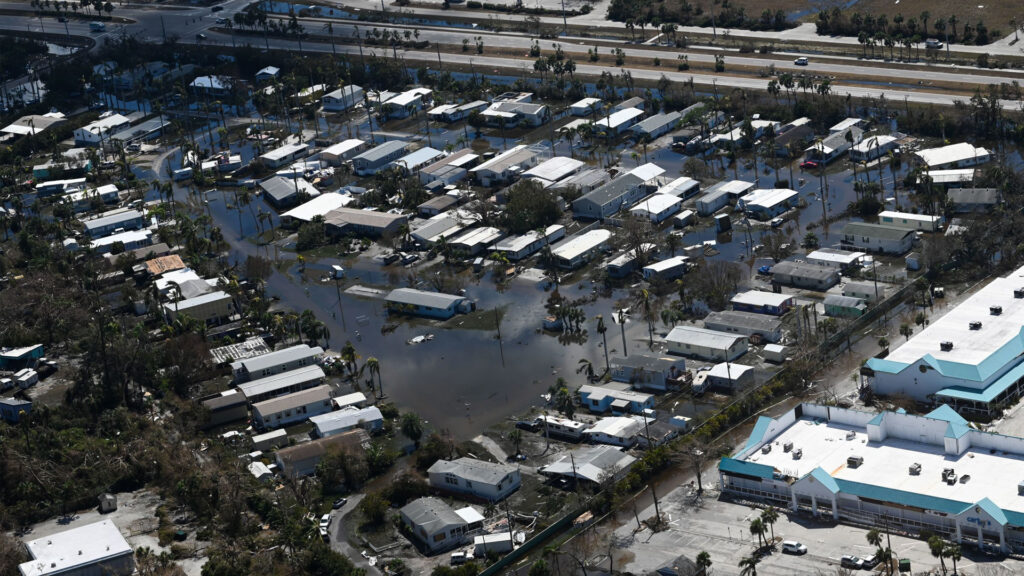By Danielle Lindsay, American Conservation Coalition Action
The problem is stark and relentless: Environmentally vulnerable communities, particularly in Florida, find themselves increasingly at the mercy of a growing array of natural disasters – from flooding and wildfires to hurricanes and tornadoes.
This not only imperils human health but also places property and critical infrastructure in the crosshairs of impending catastrophe. The Sunshine State, with its unique susceptibility to hurricanes and rising sea levels, serves as a poignant example of the urgent need for a comprehensive resilience strategy.
As the costs of dealing with these disasters soar, the financial toll becomes increasingly unsustainable. The National Oceanic and Atmospheric Administration states that the U.S. has sustained 373 weather-related natural disasters since 1980 that have caused damage severe enough to exceed $1 billion dollars in associated costs.

The total cost of these events adds up to $2.655 trillion dollars. To visualize this extraordinary sum, this stack of cash, in $1 bills, would stretch about 176,451.6 miles – this could wrap around the earth’s equator 7.072 times.
Last year alone, disaster damages in the U.S. tallied a staggering nearly $178 billion. This upward trajectory is not only economically burdensome but underscores the pressing need for a proactive, cost-effective approach to disaster preparedness.
In the face of escalating natural disasters, it is imperative that the United States takes a proactive stance toward disaster resilience. The National Coordination on Adaptation and Resilience for Security (NCARS) Act, championed by bipartisan support from Sens. Chris Coons and Lisa Murkowski, along with Reps. María Elvira Salazar and Scott Peters, emerges as a beacon of hope in addressing the specific challenges faced by Florida and coastal areas across the nation.
For years, climate-focused initiatives dominated discussions surrounding disaster preparedness. However, the NCARS Act pivots toward resilience, offering a strategic and comprehensive plan to fortify American communities against the rising threats of flooding, wildfires, hurricanes and other natural disasters. This shift is not merely symbolic; it reflects a nuanced understanding of the evolving dynamics of climate change and its impact on vulnerable regions like Florida.
One of the critical issues facing Florida is the increasing frequency and intensity of hurricanes, threatening both lives and property. The NCARS Act recognizes the urgent need for a coordinated, efficient and fiscally responsible approach to address these challenges head-on by proposing a federal “clearing house” and chief resilience officer tasked with developing and implementing a national resilience strategy.
This centralized coordination is not about bureaucratic red tape. Rather, it streamlines federal-level resources and support to bolster state and local resilience efforts, without superseding local authority or current resilience plans already in place. In essence, it creates a unified front against the mounting threats faced by coastal communities, particularly in Florida.
In the face of natural disasters, the labyrinthine network of federal, state and local resources often hampers response time rather than expediting assistance. The convoluted structure of responsibilities and decision-making authority leaves responders and victims alike in a state of confusion, as no one seems to know who is supposed to do what.

This lack of clarity and coordination ultimately leads to delays and inefficiencies in providing crucial aid during times of crisis. To address these challenges, it is crucial to establish a comprehensive and streamlined framework that will ensure that communities and the environment are getting the help they so desperately need.
Florida, with its unique vulnerability to hurricanes and rising sea levels, stands to benefit significantly from a blueprint for collaboration between federal, state, local, private sector and nonprofit entities. This would be a proactive investment in Florida’s future that goes beyond reactive disaster relief, saving lives and safeguarding valuable infrastructure.
Moreover, the bipartisan nature of the NCARS Act is a testament to its significance. In an era where political divisions often hinder progress, Sens. Coons and Murkowski, as well as Reps. Salazar and Peters, showcase that resilience is a bipartisan concern that transcends party lines.
This unity sends a powerful message: Protecting American communities from the increasing threats of climate change is a shared responsibility. It’s time for Congress to come together and take a vital step toward a more resilient and secure nation.
Danielle Lindsay is the Florida state director at American Conservation Coalition Action (ACC Action).
If you are interested in submitting an opinion piece to The Invading Sea, email Editor Nathan Crabbe at nc*****@*au.edu. Sign up for The Invading Sea newsletter by visiting here.



